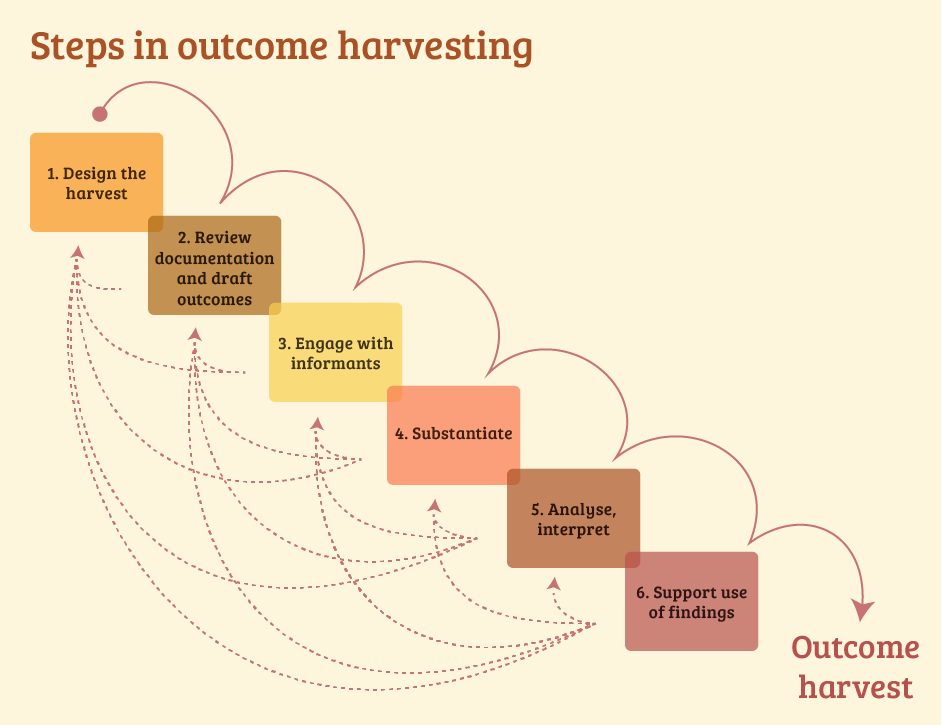Outcome Harvesting: for monitoring and evaluating complex programmes – VINCENT BELGRAVER
Conventional monitoring and evaluation
In ‘conventional’ monitoring and evaluation, we are used to measuring progress towards predetermined outcomes and ‘verify’ if a programme’s objectives were reached. After having developed a set of core-indicators for each of the outcomes, a baseline (‘snapshot’ of the situation at programme’s start) is typically established to create a benchmark against which the programme’s outcomes can be assessed. It is a great way of determining if and to what extent the objectives have been reached.
Complex programmes require a different approach
In complex environments, however, programmes often lead to a non-linear stream of difficult to predict outcomes. The results chain between activities and outcomes is typically unclear, multiple actors are involved in creating change, and activities often contribute only indirectly or partially to one or more outcomes. Think about lobbying and advocacy programmes for example. Assessing the results of such complex programmes through a linear, cause-effect approach in which progress towards predetermined outcomes is measured is not only challenging, but also unlikely to provide insight in a programme’s true outcomes. A different approach is therefore needed.
Outcome harvesting
Unlike conventional methods, Outcome Harvesting collects evidence of what has been achieved. Evaluators first look for demonstrated, observable changes (‘outcomes’) and then work backward to determine if and how the programme contributed to those outcomes. Assessment is not limited to predefined results and change patterns. This way, both predicted and unpredicted, positive and negative, direct and indirect outcomes can be captured. A set of principles and techniques is used to answer questions such as:
- What changed?
- How did the change happen?
- Who or what contributed to the change?
- How do we know this? What evidence do we have?
- What is the importance or significance of the change?
Why Outcome Harvesting?
Compared to conventional approaches, an outcome harvest provides a much broader and deeper understanding of a programme’s outcomes. It does not only help understand patterns of change in complex environments where relations of cause and effect are not fully understood, but also reveals a programme’s contribution to those changes. It is useful when outcomes are not (yet) specific enough or measurable when an intervention or programme is designed, making it well-suited for evaluations in dynamic and complex (often uncertain) environments.
Can we support you?
At Sinzer, we strongly believe in the potential of innovative approaches such as Outcome Harvesting. Would you like to learn more about it? Please get in touch with Vincent Belgraver (impact consultant) through vincent@sinzer.org / + 31 6 1484 3954.
Vincent Belgraver has been trained in Outcome Harvesting at the University of Bologna by Ricardo Wilson-Grau, the ‘founding father’ of this evaluation method.

#socialinnovation #socialenterprise #sinzer #thesectorinc #sdgs #csr #mba #wbs #impactinvesting #ESG #bradfordturner #peace #love #toronto #sustainability
